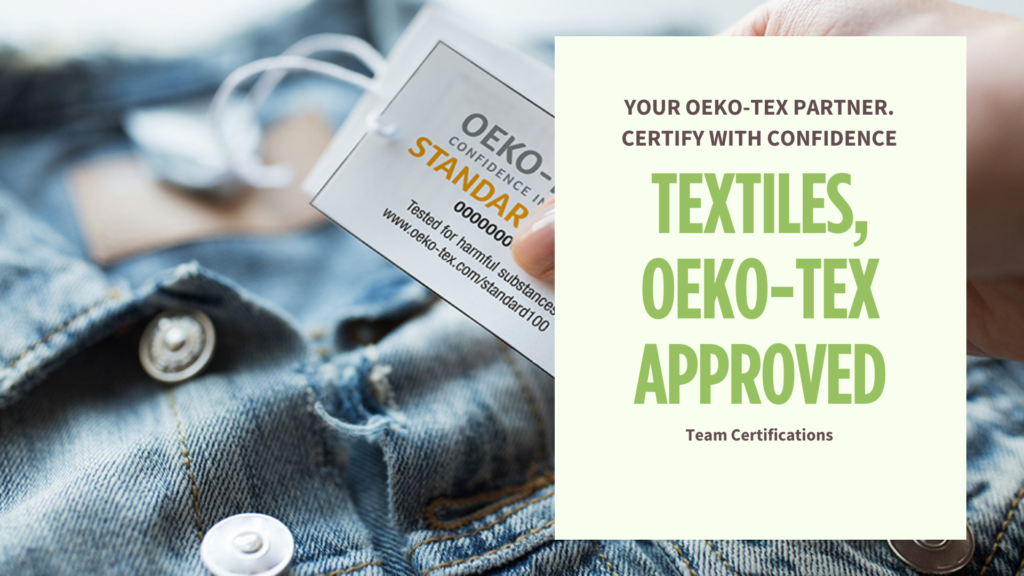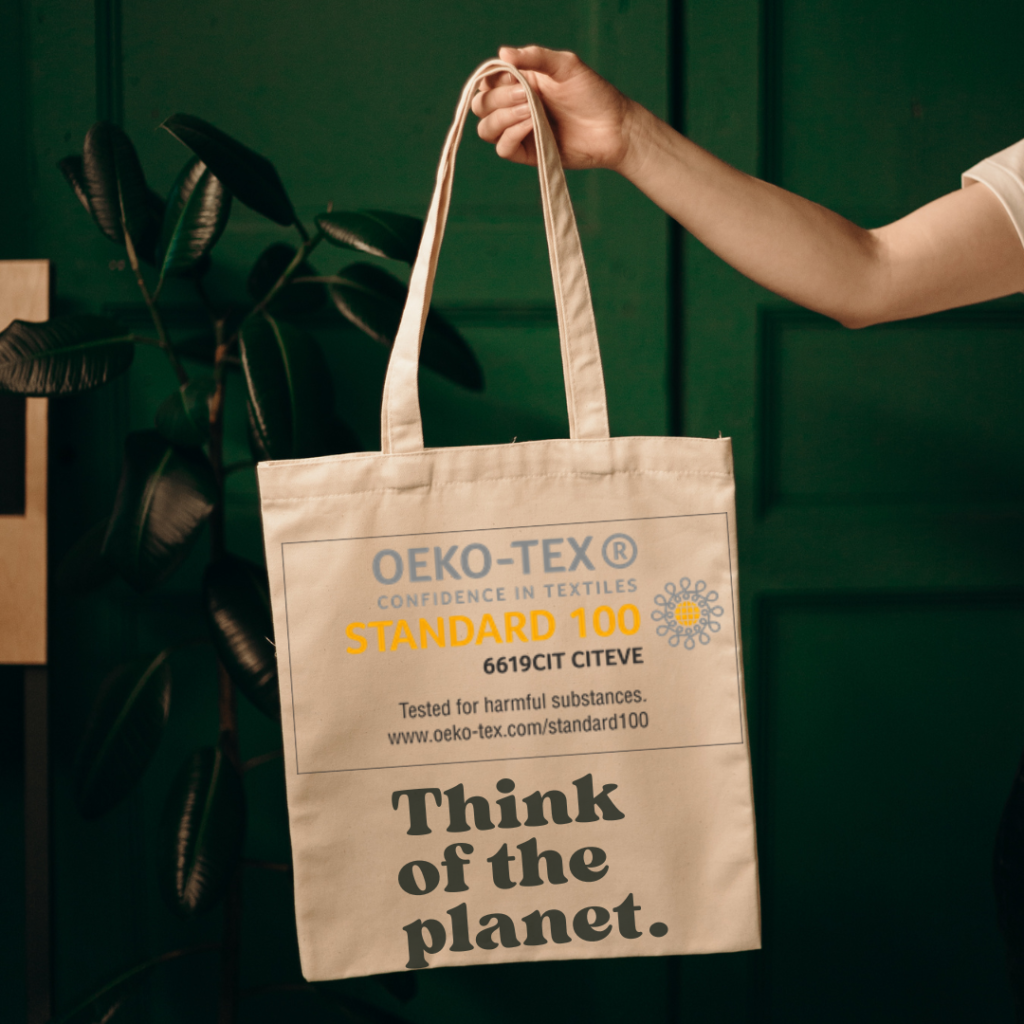OEKO-TEX Certification Standard 100: The Ultimate Guide

Lead with Oeko-Tex Standard 100
For manufacturers, suppliers, and traders in the textile and leather industry, Oeko-Tex certification is paramount. It signifies a commitment to producing and supplying textiles that meet Oekotex limit values and standards. With OekoTex standard 100 certification, you can assure your clients that your products are free from harmful substances, enhancing trust and credibility in the marketplace.
Obtaining OekoTex certificate for your textile products opens doors to new opportunities. It demonstrates your dedication to quality and safety, giving you a competitive edge in the industry. By proudly displaying the OekoTex label on your products, you showcase your commitment to responsible manufacturing practices and consumer protection.
Join the ranks of reputable manufacturers and suppliers who have earned Oeko-Tex certification. Invest in the safety and well-being of your customers while elevating your brand reputation. With Oeko-Tex Standard 100, you’re not just selling textiles – you’re providing peace of mind.
Benefits of Oeko-Tex 100 Certification
- Boost Product Appeal: OekoTex certification enhances marketability.
- Trustworthy Assurance: Consumers prefer OekoTex certified textiles for safety.
- Competitive Advantage: Gain an edge with OekoTex compliant products.
- Regulatory Compliance: OekoTex certification ensures adherence to standards.
- Global Market Access: Tap into markets prioritizing OekoTex standards.
- Confidence in Quality: OekoTex certification instills consumer trust.
- Elevated Brand Image: OekoTex certification reflects commitment to safety.
- Risk Reduction: OekoTex certified materials minimize potential hazards.
- Sales Driver: Leverage Oeko-Tex certification to boost product sales.
- Sustainability Showcase: Oeko-Tex certification highlights eco-friendly practices.
- Test Products: Ensure products meet OekoTex limits.
- Check Harmful Substances: Adhere to strict rules on allowed substances.
- Classify Products: Choose product class from (I to IV) based on need.
- Provide Details: Furnish ample information on product manufacturing.
- List Chemicals: Disclose chemicals used in making products.
- Check Facilities: Ensure factories meet Oeko-Tex standards as per Oeko-Tex audit checklist.
- Implement a Quality Management System: Have a system to ensure products are of good quality.
- Verify Suppliers: Confirm where materials come from and if suppliers have Oeko-Tex certificates.
- Track Materials: Monitor the origin of all materials used.
- Report Dye Use: Disclose if dyes are used in making products.
Oekotex Certification Cost
The OekoTex certification cost involves various components. In the initial year, the basic fee is around 2500 euros. This includes a 1000 euro annual Oeko-Tex license fee, granting permission to display the label on certified products. Additionally, there’s a 1000 euro OekoTex audit fee for next three years, covering periodic audits for continued compliance. An administration fee of 500 euros is also part of the yearly fee, aiding in processing and documentation.
If all suppliers are pre Oeko-Tex certified and no testing is required, this is the basic fee structure. However, if testing is needed, the certification cost will include testing fees as well. As the certification progresses, the annual fee reduces to 1000 euros for the following two years, reflecting a commitment to maintaining standards and offering a sustainable financial model.

Oekotex Certification Bodies
There are 17 OekoTex certification bodies, member institutes worldwide. These institutes work under the same umbrela of Oekotex association and are responsible for conducting tests and awarding certifications to textile products, ensuring they meet OekoTex standards for safety and sustainability. Some of these institutes include:
- AITEX® (Spain) …
- Centexbel (Belgium) …
- Centrocot (Italy) …
- CITEVE (Portugal) …
- DTI Danish Technological Institute (Denmark) …
- FILK Freiberg Institute (Germany) …
- Hohenstein Textile Testing Institute (Germany) …
- IFTH (France)
- Shirley Technologies Limited
- Testex AG, Swiss Textile Testing Institute
- Oeti institute for ecology technology and innovation
- Citeve tecnologia textil
How to Apply for Oekotex certification
Before Diving into Oeko-Tex 100 certification process, start by assessing if your textile products meet the standards and submit an Oeko-Tex application detailing your products and manufacturing processes. After reviewing your application, you’ll receive a cost estimate covering fees like the annual license fee and audit fee. Once you’ve paid, send samples of your products for testing, and await the results. If your products pass, you’ll receive Oeko-Tex 100 certification, showcasing your commitment to safety and eco-friendliness in textile production.
Following these steps ensures a smooth certification process, allowing you to confidently display the Oeko-Tex 100 label on your products. This certification not only enhances consumer trust but also highlights your dedication to quality and environmental responsibility.
Certification Timeline
Understand that it takes 40 to 45 working days post-sample submission and payment/certification fee to receive Oeko-Tex 100 certification. Gain insights into the processing timeline and expectations during this period
Certification Validity
Oeko-Tex certification is valid for one year from the date of issuance. During this time, certified entities are authorized to display the Oeko-Tex label on their products. Renewal is necessary after the one-year period to sustain compliance and continue using the Oeko-Tex label.
Need A Free Estimate for Oeko-Tex certification ?
Cost of Oekotex, Gots, Grs, or similar product certifications varies from company to company and depend on several factors like inhouse facilities, details of suppliers, etc. In order to give an estimated quotation, we need to know your business details. Feel free to contact our experts to get an estimated quotation.
